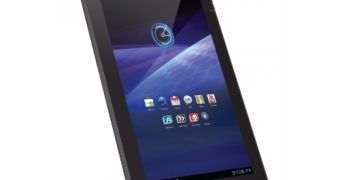We have learned what has happened to the sixth intended supplier of ARM-powered tablets running Microsoft's upcoming Windows RT operating system.
Toshiba was supposed to be among the few IT companies allowed by Microsoft to release Windows RT on ARM slates alongside its Surface.
Unfortunately, troubling circumstances have forced the outfit to give up such plans for the time being.
The six who were supposed to release tablets in October 2012 were Dell, HP, ASUS, Lenovo, Toshiba and Samsung.
Two days ago though (August 14), Microsoft revealed, in a blog post, that only Samsung, Dell, Lenovo and ASUS were still part of its launch plans.
We still don't know why HP backed out. Previous rumors said it and Dell were competing over the same spot on Microsoft's list, but later reports said both could fit in.
We do know why Toshiba has taken a step back though: shortage of components necessary for the manufacture of its device.
The folks at SlashGear reveal that a component delay has made it impossible for Toshiba to launch its units on time. Thus, the IT firm will have to make the best of Windows 8 on Intel instead.
“Toshiba has decided not to introduce Windows RT models due to delayed components that would make a timely launch impossible,” said Eric Paulsen for Toshiba.
“For the time being, Toshiba will focus on bringing Windows 8 products to market. We will continue to look into the possibility of Windows RT products in the future while monitoring market conditions.”
Toshiba was going to use Texas Instruments processors, but it is unclear if these are the components unavailable or if Toshiba is wrestling with shortages of different items.
All we can say is that this turn of events doesn't fill us with joy. Given Toshiba's experience with Android tablets, and the fact that it didn't delay in updating them to better operating systems whenever possible (Thrive 10 is the most recent example), we're fairly certain it would have handled Windows RT on ARM quite well.

 14 DAY TRIAL //
14 DAY TRIAL //